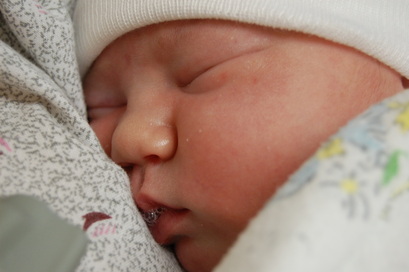|
As we celebrate the birth of a child 2,000 ago, consider the diminishing birthrate in the United States. "More babies, please," says Ross Douthat in the New York Times. A new study by the Pew Research Center found that the U.S. birthrate in 2011 was the lowest ever recorded, with only 63 births per 1,000 women of childbearing age. In 1990 that number was 71.
An obvious reason for this is the economic downturn. There's something that agitates me about the question, "Can we afford to have a baby?" With three small children consuming my resources, I certainly understand the necessity to provide. (My 5-year-old finished my Honey Nut Cheerios this morning!). I would not advocate irresponsibility. But should finances be the driving force in my family? Should money be the determining factor in how many children we have? Will our family be "missing" someone because we couldn't afford it? Is my standard of living too high? Should we take fewer vacations and drive an older car so we can bring another child into the world? There is a risk with bringing any child into the world. In 2012, one risk is the increasing demand on the family budget. Costly health care and college savings have become necessities. In the Great Depression, it was simply food and a roof. The basic question of provision plays an important role in growing a family. So how many children should a family have? I won't even go there. Every couple must prayerfully consider their own context when discussing family size. I do know that my children have taught me selflessness. Their existence has required me to sacrifice, and I'm a better man because of it. There was a child born to a teenage mother in Bethlehem. She and her husband had meager resources. For a while, they lived in Africa as refugees because of a tyrant king. Yet God's provision was enough for this family. In fact, his provision in the manger has spilled over into abundance 2,000 years later. Comments are closed.
|
JOIN My Tribe
|



